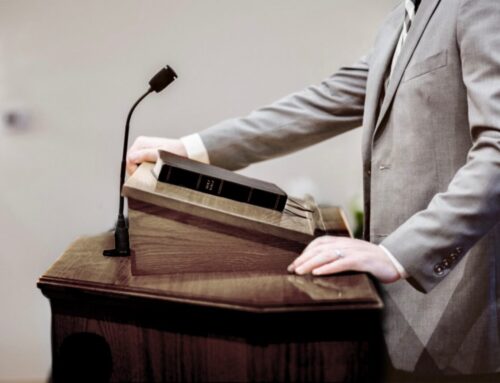-
the painless killing of a patient suffering from an incurable and painful disease or in an irreversible coma. The practice is illegal in most countries.synonyms:mercy killing · assisted suicide · physician-assisted suicide · merciful release · happy release · quietus
Definitions are so here you go if you want to know…yet just words on paper aren’t they. Especially in the times in which we live where meanings and definitions are being corrupted, perverted, and made into shapes and ideas and beliefs the words or practices never were meant.
Euthanasia along with assisted suicide is similar in the current culture to the word abortion. Mind-numbing words used so much as to not sink in when heard by most people, and their use all but removing the fact all four words — euthanasia, assisted suicide, abortion — all = murder.
Let’s be clear, shall we?
Let’s be plain and speak and write simply and straightforward. Clearly. They all add up to MURDER and removing the sanctity of life. Removing God. Removing morality. Removing laws and making them lawless.
All under the lie, the pretense of making the situation better for everyone involved.
Really?
Since when has murder, taking a life made things better for the people involved?
People removing God and playing god. Replacing God. Imagining themselves, no, not even imagining any longer — they have nominated themselves god and Caesars, deciding thumbs up, thumbs down who lives and who dies.
You don’t fit the profile? You’re old? Have a severe illness? You’re determined to be mentally ill? Have chronic symptoms? You’re disabled?
Well, let’s get rid of you all!
According to those who have pushed aside all morals, pushed aside God, pushed aside principles, values, and the sanctity of life to determine who they will murder and who they will permit to live.
And the rules change, the determining factors change all the time.
We already have had occasions where people did not agree to be murdered yet they had their lives ended. This has happened hundreds of times in Europe. It continues. It grows. Safeguards fall by the wayside. The laws change and become more immoral and lawless.
Read one report of this before continuing on to the lead article here from The Christian Institute.
Here are facts of what has happened and is happening in Europe;
People in Europe are being euthanized without their consent
What happens after assisted suicide becomes legal? According to its advocates, it merely ensures that people will be able to choose death on their own terms — to, as they say, choose death with “dignity” instead of suffering incredible pain as they die slowly of a terminal disease. They promise there will be safeguards to prevent its abuse, that people with mental illnesses will be kept safe, and it will solely be restricted to people who are actively dying. The reality is quite different. Wherever assisted suicide has been legalized, abuses inevitably happen. People are pressured to accept euthanasia rather than receive treatment for their illness. The safeguards for euthanasia slowly fall by the wayside, and people are euthanized for increasingly frivolous reasons. And in Europe, new reports show that people are being euthanized without their consent.
A study in the British Journal of Cancer found that approximately 10 percent of all cancer patients in Belgium chose assisted suicide, rather than fighting their disease. More disturbingly, nearly two percent of cases resulted in assisted suicide without an explicit patient request for it. The percentages were based on physician response to an end-of-life survey about cancer patients. Disturbingly, some people clearly seem to be choosing assisted suicide, not because of their own wishes, but because of fears of how their disease was affecting their family; the reason in 28 percent of cases was the “wish of the family”, and in 12.4 percent of cases, an “unbearable situation for relatives”.
Bioedge also points out some confusing numbers in the study; the authors reported that “decision-making took place without the patient’s input in almost 20% of the cases”. This did not necessarily equal euthanasia, as it could have referred to a cessation of treatment or pain relief without patient consent. But aside from being unethical, such behavior could certainly lead someone to consider assisted suicide, as they suffered through unnecessary pain without knowing that their pain could be alleviated.
Another study was published in the journal BMC Medical Ethics. This study examined the euthanasia deaths of nine people in the Netherlands, who all had intellectual disabilities or were on the autism spectrum, and also acknowledged that euthanasia for psychiatric reasons was growing in the Netherlands.
“There were 2 reported cases in 2010, 42 in 2013, and 60 in 2016,” the authors wrote. “EAS for mental suffering has been fiercely debated. Arguments have focused on the difficulty of assessing the patient’s subjective perception and complaints and on the challenges in assessing the patient’s capacity of judgement, which may be impaired by psychiatric conditions such as severe depression.”
“The Dutch EAS due care criteria are not easily applied to people with intellectual disabilities and/or autism spectrum disorder, and do not appear to act as adequate safeguards,” they concluded.
READ: Euthanasia spirals out of control as Netherlands allows euthanasia for alcoholics
In the 2017 Dutch euthanasia report, out of 6,585 reported euthanasia cases, 252 of them were due to either dementia or psychiatric reasons — specifically, 83 people were killed over mental illness. This number has risen each year, from just 12 in 2012 to 64 in 2016, and now, 83 people.
One of those people was Aurelia Browers, a healthy 29-year-old woman who suffered from anxiety, eating disorders, depression, psychosis, and a history of self-harm. She also had repeatedly attempted suicide. And she was euthanized in 2017. Sadly, Browers is hardly alone. In the Netherlands, people are euthanized because they are autistic, suicidal victims of sexual abuse, or struggling with addiction. Others have said they hear voices or have delusions.
In one disturbing case, an elderly woman with dementia fought for her life as her family held her down and a doctor forcibly euthanized her. Incredibly, a Dutch panel cleared the doctor of any wrongdoing. Another woman is speaking out after her mother was murder under the cover of euthanasia:
At the moment they gave her the injection, they said they gave it so that she could go to sleep, but in fact, they just killed my mother. The GP said, ‘Well, I’m here with your mother and I ordered an ambulance because I think she has pneumonia.’ I drove to the place where the hospital is, and I got a call, and there was a voicemail from a doctor from the ER. He said, ‘You don’t have to hurry, because you will not find her alive if you come to the hospital.’ And he said, ‘Yeah, we had to give her an injection so she will be in a coma, but it will be a coma she will not wake up.’ […] So I said, ‘But why, why didn’t you intubate her?’ And he said, ‘I called the GP, and the GP said, she was lonely; she was depressed; she didn’t want to go out of her house; and she just wanted to stay in her house; she didn’t want to go to a home… therefore we decided that it would be better not to treat her anymore.’
They said my mother was depressed, but she was not depressed!
When her mother died in the middle of the night, she received a call from the doctor. She explains:
[…] I said, ‘The cause of death? What was the cause of death?’ And she said, ‘Pneumonia and heart failure.’ But I thought […] ‘But no, that was not. It was that lethal injection you gave her.’
[…] She was euthanized without consent. They decided.
In 2015, over 400 people with killed by euthanasia in the Netherlands without their consent. That’s not even including the people like Aurelia Bowers, who chose to die but was likely not able to freely give her consent. After all, when a person repeatedly attempts suicide, we recognize that they are not able to see the situation clearly; they are sick and they need help for that sickness because their life still has worth and value.
This is not the case in places like Belgium and the Netherlands, though. Increasingly, euthanasia is becoming a tool to get rid of the unfit and unwanted: the elderly, the disabled, the mentally ill. And it must be stopped.
Ken Pullen
Tuesday, March 16th, 2021
ACP — A Crooked Path Made Straight By the Word of God
Canadian euthanasia Bill targets disabled and mentally ill
15 March 2021
Reprinted from The Christian Institute
The Canadian Government is seeking to make it legal for doctors to directly kill or assist the suicide of vulnerable people who are not terminally ill.
Bill C-7 will remove the requirement for a person’s natural death to be “reasonably foreseeable” and let disabled people, including those suffering from a mental illness deemed to be incurable, to access Medical Assistance in Dying (MAID).
Although the Bill stalled in the Canadian House of Commons at its final reading, the Quebec Superior Court has given the Government until 26 March to have the legislation in place.
Life worth living
Heidi Janz, ethics professor at the University of Alberta and chair of the Council of Canadians with Disabilities’ Ending-of-Life Ethics Committee, called the plans “irresponsible and extremely unethical”.
Having grown up among other children with disabilities, Prof. Janz said: “we all knew that some of us would live longer than others. But we also knew that all of us would live with the best quality of life possible”.
But she confessed that she worries about the effect expanding euthanasia will have “on kids and youth with disabilities”.
“irresponsible and extremely unethical”
She added: “What keeps me up at night is knowing that this is not the message the current generation of kids with disabilities is getting. Instead, they’re hearing about parents requesting MAID for their disabled kids.”
Protect from pressure
In an article for The Conversation, palliative care expert Dr. Leonie Herx said: “As a physician, my job is to restore hope and promote healing. It’s not to suggest death as the answer to suffering and to facilitate ending someone’s life.”
She added: “Bill C-7 is based on a very narrow view of autonomy”.
“Legislative protections need to be put in place to prevent people from being pressured into MAID and doctors from being forced to facilitate it.”
‘Vulnerable’
In the Canadian Parliament, opponents of the Bill expressed alarm at the prospect of those with a mental illness being killed by their doctor.
Michael Barrett MP said that, rather than giving vulnerable people “adequate care”, the Government was striving to “offer them death”.
The MP continued: “We need to help people get better and to give them hope, not do everything we can to make death the easiest path for them.”
We need to help people get better and to give them hope, not do everything we can to make death the easiest path for them
He also said: “I urge my colleagues on all sides of the House to reaffirm the dignity that is inherent and inalienable in all people, in every person, and to keep the preferential option for the vulnerable in mind. That option is care and support, not death.”

Euthanasia deaths rise in Canada with people citing ‘being a burden’
2,000 Irish medics speak out against euthanasia and assisted suicide
New Zealand referendum legalises euthanasia and assisted suicide







Leave a Reply, please --- thank you.